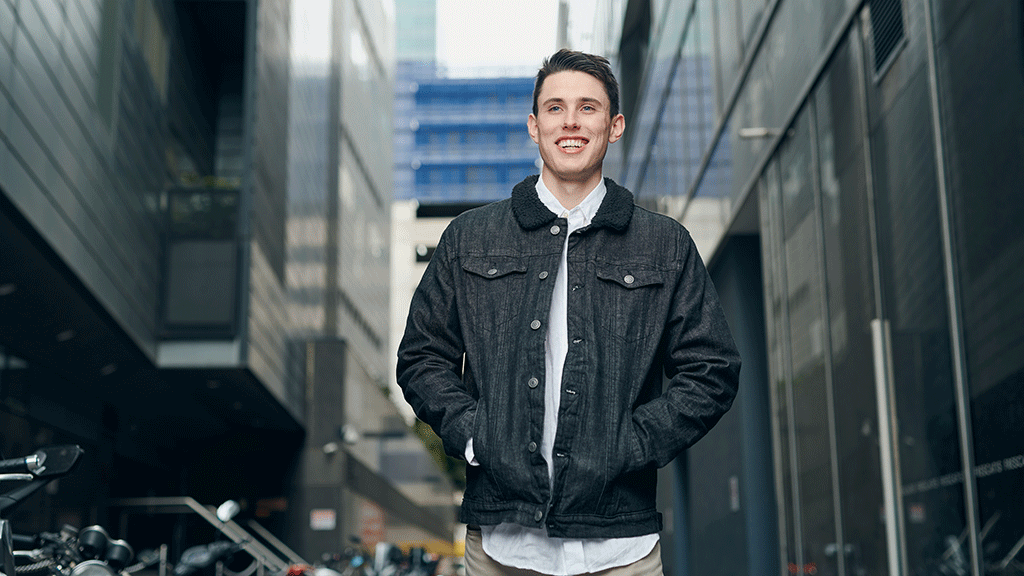Why you need to make time for yourself every day
Self-care is not self-indulgence, it is self-preservation.
– Audre Lorde, feminist and civil rights leader
How are you feeling at the moment? For many of us, moving in and out of lockdowns, and the cumulative physical, emotional, academic and financial toll, is really affecting our mental health and wellbeing.
If you’ve been trying to ‘soldier on’ during this time so that you can look after those close to you, it’s important to remember this: you’re no good to others if you’re not taking care of yourself.
Self-care is all about making time for the things that bring you joy and make you feel your best. So many of us don’t attend to these basic needs as we focus on work, study, family and the other things in our life that demand time and attention.
We encourage you to make self-care an integral part of your daily routine.
Self-care sounds great – but how do I actually make it happen?
Ways of practising self-care can be totally different, depending on the individual. It’s all about what puts you in a good headspace. You might like nothing better than going for a long or punishing run, while your friend might prefer lying on the couch reading or binge-watching TV shows. Pick what works for you – and don’t feel you have to explain or justify it to anyone else!
To embed it in your everyday life, we recommend that you treat self-care like any other important task or appointment. Pick a regular time and block it out in your calendar so you can’t cancel or double-book yourself.
The Black Dog Institute says that self-care helps to prevent stress and anxiety. Check out their self-care planning fact sheet and template, which outlines some simple steps to get you in a better headspace.
Like the sound of self-care but need some guidance on how to start putting yourself first? Join our upcoming online workshop, Strategies for managing stress and anxiety. You’ll learn about external and internal factors that cause stress and anxiety, and emotion- and problem-focused coping.
When: Tuesday 14 September, 1–3pm. REGISTER NOW.
Also try the following tips, which you can do no matter what restrictions are currently in place.
 Get moving
Get moving
Yes, we know it’s an obvious one! But exercise really does help to keep you physically AND mentally healthy. People who exercise regularly have improved emotional wellbeing and outlook. They’re also likely to experience lower rates of mental illness. Participating in exercise also improves sleep, which plays a crucial role in boosting mood.
Finding it hard to get started or keep it up during yet another lockdown? Check out headspace for some great tips and real-life stories of people who’ve exercised their way to better mental health.
 Understand how food affects mood
Understand how food affects mood
Proper nutrition is essential to your mental and physical health. Food gives you the energy, protein, essential fats, vitamins and minerals needed to live, grow and function at your best. A wide variety of foods will give you the nutrients you need for good health.
Food and your mental wellbeing live on a two-way street. Your diet can affect your mood, and your mood can equally affect your food choices. Recent research has found that mental health outlook is improved when people swap to a healthier dietary pattern high in vegetables, fruits, whole grains, legumes, nuts, fish and olive oil.
Need some inspiration? Get into the kitchen and try these healthy snacks!
 Ditch those bad habits
Ditch those bad habits
Do you have a bad habit or two that you can’t seem to stop? Most of us do! It might be something minor – like using your phone too much before bed so you struggle to sleep, or it could be more serious – like a dependency on cigarettes, drugs or alcohol that’s affecting your health and lifestyle.
To break the negative cycle and put your wellbeing first, find out more about triggers that cause bad habits and ways to change your mindset.
 Keep doing what you love
Keep doing what you love
For some people, being forced to slow down during lockdown and suspend old habits or routines has been a blessing in disguise. It’s important to keep up any long-standing or new-found passions and ask yourself what’s really important to you. Give yourself permission to say ‘no’ to activities when you’re feeling depleted, make time each day to do the things you love and don’t over‑schedule yourself.
 Seek help if you need it
Seek help if you need it
If you start to feel excessively stressed or anxious, begin to withdraw from friends and family, or notice unusual symptoms or emotions, it might be wise to seek some help. For emergency, 24-hour support, contact LifeLine or SuicideLine. Deakin also has a range of student support services.
